This article explores the essential types of legal cases in the U.S. and offers expert guidance on finding qualified attorneys in Chandler, Arizona, and similar metropolitan areas.
Personal injury cases represent a significant portion of legal disputes in the U.S., often stemming from accidents or negligence. Victims may seek compensation for medical expenses, lost wages, and pain and suffering. To find a skilled personal injury attorney, consider looking for those with a strong track record of successful settlements and trial experience. Platforms like Avvo and FindLaw can help you compare attorneys based on client reviews and ratings.
Medical malpractice cases arise when healthcare professionals fail to meet the standard of care, resulting in harm to patients. This area of law is complex, requiring an attorney with specialized knowledge. When searching for a medical malpractice lawyer, prioritize those with experience in the medical field and a history of winning malpractice cases. Look for credentials such as board certifications in medical malpractice law.
Breach of contract cases occur when one party fails to fulfill their contractual obligations. These disputes can be intricate and often require an attorney skilled in contract law. When selecting a lawyer, verify their experience in handling similar cases and check for positive client testimonials. Websites like Martindale-Hubbell provide peer reviews and ratings that can help in your decision-making process.
Property disputes can involve boundary issues, ownership claims, or zoning disputes. Finding a lawyer with expertise in real estate law is crucial for effectively addressing these conflicts. Look for attorneys who have successfully handled property disputes in your area and have a good understanding of local real estate laws. Recommendations from real estate agents can also be valuable.
Landlord-tenant disputes often revolve around lease agreements, security deposits, and tenant rights. A lawyer specializing in real estate law can help navigate these issues. When searching for an attorney, consider their familiarity with local landlord-tenant laws, and look for those who have handled cases similar to yours. Online legal services can provide initial consultations to assess your needs.
Defamation cases, including libel and slander, can have serious repercussions for personal and professional reputations. Selecting an attorney experienced in these sensitive matters is crucial. Look for lawyers who have successfully litigated defamation cases and can demonstrate a deep understanding of the legal principles involved. Referrals from trusted sources can be particularly helpful in this area.
Employment disputes can encompass wrongful termination, discrimination, and wage issues. Finding an attorney with expertise in employment law is essential for protecting your rights as an employee. Look for lawyers who are members of professional organizations such as the National Employment Lawyers Association (NELA) and have a proven track record in employment-related cases.
Product liability cases arise when consumers are harmed by defective products. Identifying a lawyer experienced in this area can enhance your chances of a successful claim. Look for attorneys who have handled similar cases and are familiar with the specific laws governing product liability in your state. Online reviews and case results can provide insights into their effectiveness.
Wrongful death claims seek justice for families who have lost loved ones due to negligence. Choosing an attorney with experience in these sensitive cases is critical for effective representation. Seek lawyers who specialize in wrongful death and have a compassionate approach, as these cases often involve emotional turmoil.
Class action lawsuits allow groups of individuals to sue for collective grievances, often involving consumer rights or corporate misconduct. Understanding how to find a lawyer experienced in class actions can help you navigate this complex legal terrain. Look for attorneys who have successfully led class action lawsuits and can demonstrate a strong understanding of the associated legal processes.
Assault and battery cases involve serious criminal charges and civil claims. Finding a competent attorney who understands both criminal defense and personal injury law is essential for your case. Seek lawyers with proven experience in handling assault cases and who can provide a strong defense strategy.
Drug offenses can lead to severe legal consequences, making it crucial to select an experienced criminal defense attorney. Look for lawyers who specialize in drug-related charges and have a history of favorable outcomes in similar cases. Online directories can help identify qualified attorneys in your area.
Family law encompasses divorce, child custody, and support matters. Finding a compassionate yet assertive attorney in family law is vital for achieving favorable outcomes in these emotionally charged cases. Seek lawyers who are experienced in mediation and negotiation, as these skills can be invaluable in family law disputes.

Understanding Personal Injury Cases
Personal injury cases represent a significant portion of legal disputes in the United States, often stemming from incidents involving accidents or negligence. These cases can include a wide range of situations, from automobile accidents to slip-and-fall incidents, and even medical malpractice. Understanding the nuances of personal injury law is essential for anyone looking to pursue a claim and obtain the compensation they deserve.
When seeking a skilled personal injury attorney, there are several critical factors to consider:
- Experience: Look for attorneys who specialize in personal injury law and have a proven track record of handling cases similar to yours.
- Credentials: Verify their educational background and any certifications related to personal injury law.
- Reputation: Research online reviews and testimonials to gauge the attorney’s reputation in the community.
- Initial Consultation: Many personal injury lawyers offer free consultations. Use this opportunity to assess their communication style and approach to your case.
Additionally, it’s essential to understand the fee structure of the attorney you choose. Most personal injury attorneys work on a contingency fee basis, meaning they only get paid if you win your case. This arrangement can alleviate the financial burden of legal fees upfront.
In metropolitan areas like New York City, Los Angeles, and Chicago, the competition among personal injury attorneys can be fierce. As such, it’s crucial to conduct thorough research. Utilize platforms like Avvo, FindLaw, and Justia to compare attorneys based on their experience, client reviews, and case outcomes.
Moreover, be wary of red flags, such as attorneys who guarantee results or those who pressure you into making quick decisions. A reputable attorney will provide honest assessments of your case and outline realistic expectations.
In summary, finding a qualified personal injury attorney involves careful consideration of their experience, reputation, and fee structure. By taking the time to research and consult with potential attorneys, you can significantly increase your chances of a successful claim.
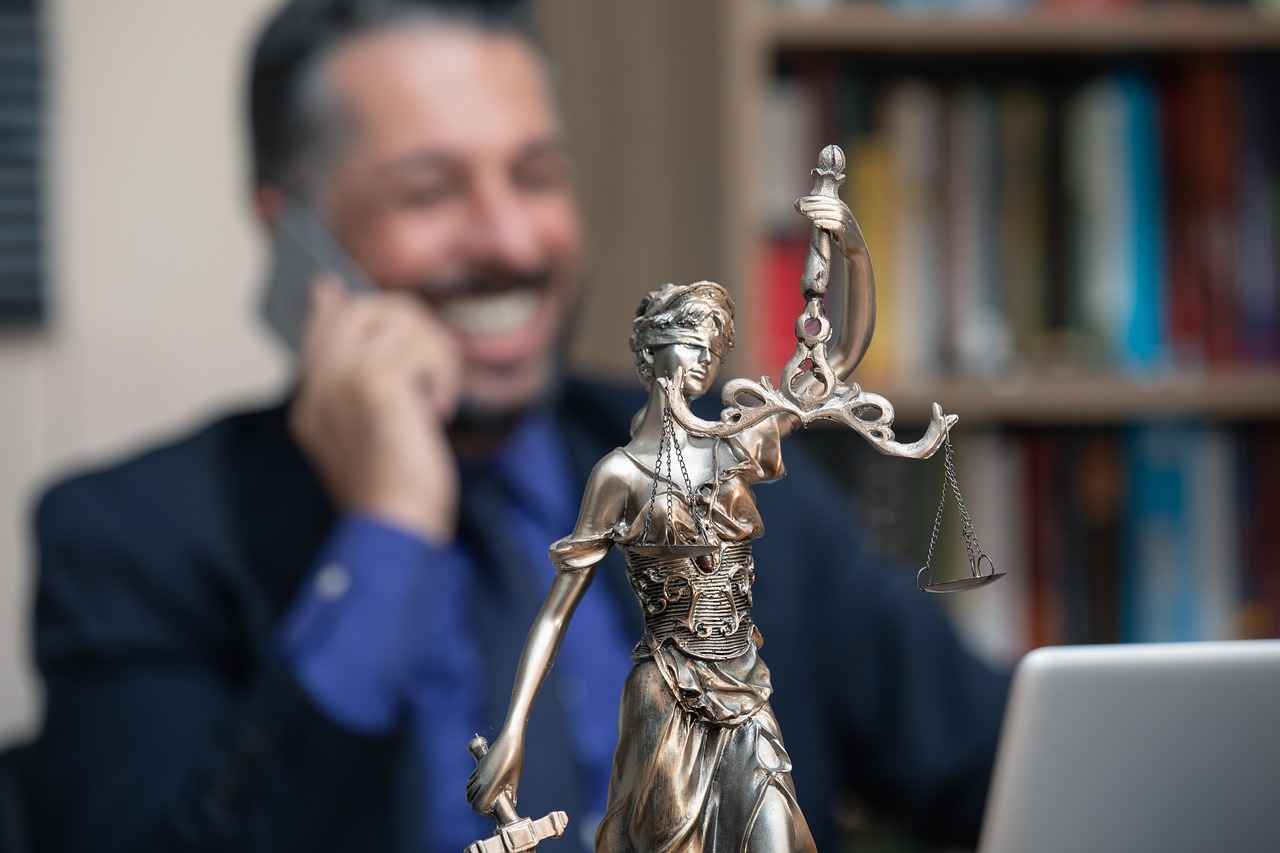
Navigating Medical Malpractice Claims
Medical malpractice is a complex area of law that arises when healthcare professionals fail to provide the appropriate standard of care, resulting in harm to patients. This can include negligence in diagnosis, treatment, or aftercare. Understanding the intricacies of medical malpractice is crucial for anyone seeking justice in these cases.
To begin with, it’s essential to recognize the common types of medical malpractice, which can include:
- Misdiagnosis: When a healthcare provider fails to diagnose a condition accurately.
- Delayed Diagnosis: When a diagnosis is made too late for effective treatment.
- Surgical Errors: Mistakes made during surgery, such as operating on the wrong site.
- Medication Errors: Incorrect prescriptions or dosages that lead to patient harm.
- Failure to Treat: Not providing necessary treatment for a diagnosed condition.
Finding a competent attorney with experience in medical malpractice can significantly impact the outcome of your case. Here are some proven strategies to help you locate the right legal professional:
- Seek Specialized Experience: Look for attorneys who specialize in medical malpractice law. Their expertise will be invaluable in navigating the complexities of your case.
- Check Credentials: Verify the attorney’s qualifications, including their education, years of practice, and any relevant certifications. Membership in professional organizations, such as the American Association for Justice, can be a good sign of their commitment to the field.
- Read Reviews: Online reviews and testimonials can provide insight into an attorney’s reputation and past client experiences. Websites like Avvo and Martindale-Hubbell are excellent resources for this.
- Consultations: Most attorneys offer free initial consultations. Use this opportunity to discuss your case and gauge their understanding and approach. Ask specific questions about their experience with similar cases.
- Evaluate Communication: Effective communication is vital. Choose an attorney who listens to your concerns and explains legal concepts clearly.
When engaging with potential attorneys, be aware of red flags that may indicate a lack of competence or professionalism:
- Lack of Transparency: If an attorney is vague about fees or the process, it may be a sign to look elsewhere.
- High Pressure Tactics: Be cautious of attorneys who push you to sign contracts quickly or make hasty decisions.
- Poor Communication: If you struggle to get in touch with them or receive inadequate responses, it may indicate future challenges.
In summary, navigating medical malpractice claims requires careful consideration and the right legal representation. By following these guidelines, you can find a qualified attorney who can help you pursue justice effectively. Remember, your health and well-being are paramount, and securing the right legal assistance is a crucial step in that journey.

Breach of Contract Issues
Breach of contract cases occur when one party fails to meet their obligations as outlined in a legally binding agreement. This can happen in various contexts, including business transactions, employment agreements, and real estate contracts. Understanding the nuances of contract law is essential for individuals seeking to enforce their rights or defend against claims of breach.
When faced with a breach of contract, it is crucial to take immediate action. The first step is to gather all relevant documentation, including the original contract, any correspondence related to the breach, and evidence of the damages incurred. This information will be vital when consulting with an attorney.
Choosing the right attorney is paramount in navigating breach of contract cases. Here are some key considerations:
- Experience in Contract Law: Look for an attorney who specializes in contract law and has a proven track record in handling breach of contract cases. Their experience will be invaluable in understanding the intricacies of your specific situation.
- Reputation: Research potential attorneys through online reviews, testimonials, and professional organizations. A lawyer with a strong reputation in the legal community is likely to provide competent representation.
- Communication Skills: Effective communication is essential in legal matters. Choose an attorney who is responsive, listens to your concerns, and can explain complex legal concepts in understandable terms.
- Fee Structure: Discuss the attorney’s fee structure upfront. Some may charge hourly rates, while others may work on a contingency basis. Understanding the costs involved will help you make an informed decision.
- Initial Consultation: Take advantage of initial consultations to assess whether the attorney is a good fit for your needs. Prepare questions in advance to gauge their expertise and approach to your case.
In major metropolitan areas like New York City, Los Angeles, and Chicago, numerous resources are available to help you find qualified attorneys. Online platforms such as Avvo and FindLaw provide directories of lawyers, along with ratings and reviews. Additionally, local bar associations often offer referral services that connect individuals with attorneys based on their specific legal needs.
While seeking legal representation, be wary of red flags that may indicate a less-than-reputable attorney. Avoid lawyers who guarantee specific outcomes, as no attorney can predict the results of a case with certainty. Also, be cautious of those who pressure you to sign contracts or make decisions quickly without fully discussing the implications.
In conclusion, understanding breach of contract issues and selecting the right attorney is essential for protecting your rights. By conducting thorough research and considering the factors outlined above, you can find a qualified legal professional to guide you through the complexities of your case.

Resolving Property Disputes
Property disputes can arise from a variety of issues, including boundary disagreements, ownership claims, and easement rights. These conflicts can be complicated and emotionally charged, making it essential to seek legal guidance. In this section, we will explore how to effectively resolve property disputes and the steps to find a qualified lawyer experienced in real estate law.
When dealing with property disputes, it is crucial to understand the specific nature of your issue. Common types of property disputes include:
- Boundary Disputes: Conflicts over where one property ends and another begins.
- Title Disputes: Issues regarding who legally owns a property.
- Easement Disputes: Conflicts over the right to use another person’s property for a specific purpose.
- Land Use Issues: Disagreements related to zoning laws and property use regulations.
Finding the right attorney for your property dispute is essential. Here are some practical tips to help you:
Start by conducting thorough research to identify attorneys who specialize in real estate law. Look for lawyers with a solid track record in handling property disputes. Online platforms such as Avvo, FindLaw, and Martindale-Hubbell can provide valuable information about attorneys’ backgrounds, including their experience, client reviews, and professional ratings.
When evaluating potential lawyers, pay attention to their credentials. Look for attorneys who are members of recognized legal associations, such as the American Bar Association or your local bar association. Additionally, consider their years of experience specifically in real estate law and property disputes.
Many attorneys offer free initial consultations. Use this opportunity to discuss your case, ask questions, and gauge their understanding of your situation. During these meetings, consider the following:
- Communication Style: Ensure the attorney communicates clearly and is willing to listen to your concerns.
- Approach to Disputes: Ask how they plan to handle your case and what strategies they recommend.
- Fees and Costs: Understand their fee structure and any additional costs that may arise during the process.
While searching for a lawyer, be mindful of potential red flags. Avoid attorneys who:
- Promise guaranteed outcomes.
- Have numerous negative reviews or complaints.
- Are unwilling to provide references or examples of past cases.
Resolving property disputes can be a complex and challenging process. However, with the right legal representation, you can navigate these issues more effectively. By conducting thorough research, checking credentials, and being vigilant for red flags, you can find a qualified attorney who will advocate for your rights and help you achieve a favorable resolution.
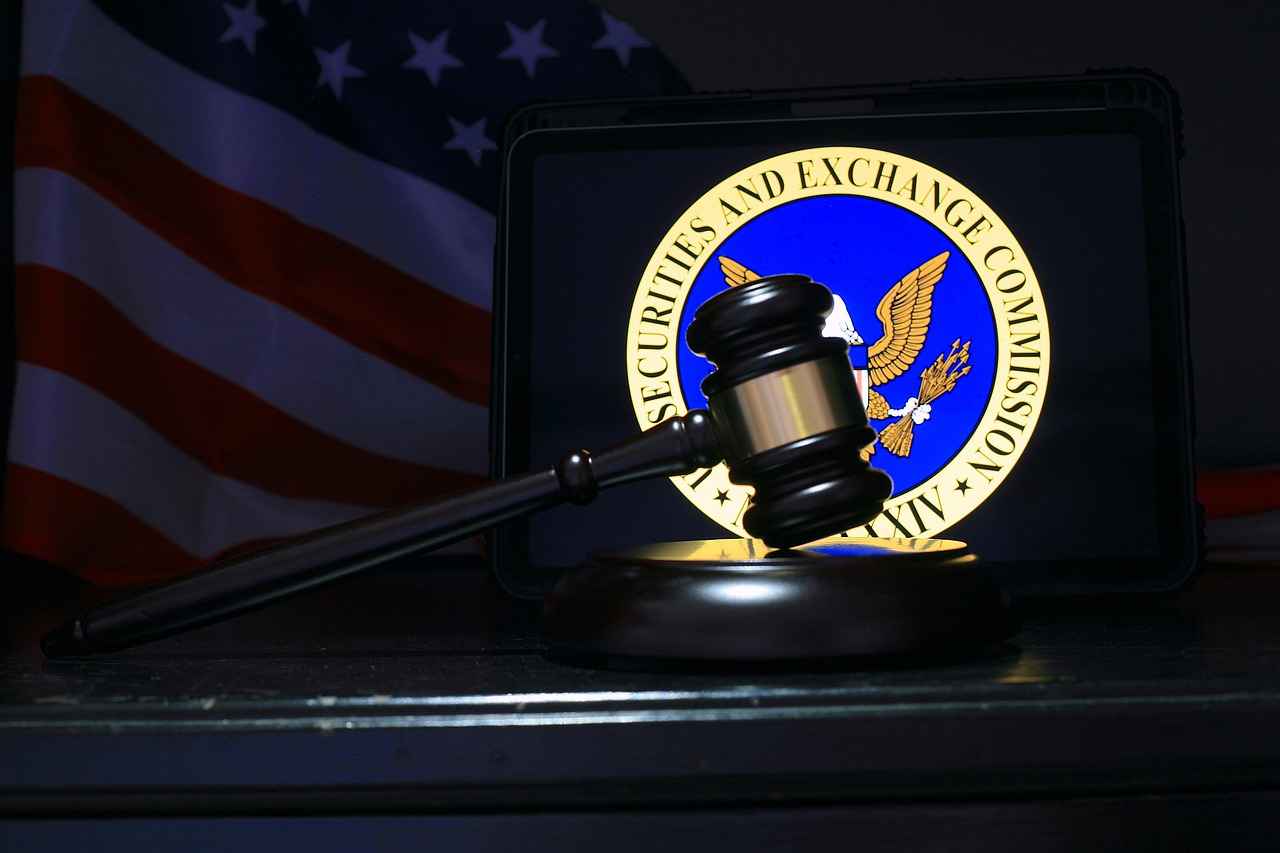
Landlord-Tenant Disputes Explained
Landlord-tenant disputes can arise from various situations, often revolving around lease agreements and tenant rights. These conflicts can lead to significant stress for both parties involved, making it essential to understand how to navigate these issues effectively. Whether you are a landlord or a tenant, knowing your rights and responsibilities is fundamental to resolving disputes amicably.
One common source of conflict is the lease agreement, which outlines the terms and conditions of the rental arrangement. Disputes may arise if one party believes the other is violating these terms. For instance, landlords may seek to evict tenants for non-payment of rent, while tenants may claim that landlords have failed to maintain the property adequately. Understanding the specifics of the lease can often clarify misunderstandings and help both parties find common ground.
To effectively manage landlord-tenant disputes, it is crucial to seek the advice of an attorney who specializes in real estate law. Here are some steps to find the right legal professional:
- Research Online: Utilize legal directories such as Avvo or FindLaw to find attorneys in your area who specialize in landlord-tenant disputes.
- Check Credentials: Look for attorneys with experience specifically in real estate law. Verify their educational background, years of practice, and any relevant certifications.
- Read Reviews: Online reviews and testimonials can provide insight into the attorney’s reputation and success rate in handling similar cases.
- Schedule Consultations: Many attorneys offer free initial consultations. Use this opportunity to discuss your case and gauge whether the attorney understands your situation and can provide sound advice.
- Ask About Fees: Understanding the attorney’s fee structure upfront can prevent surprises later. Some attorneys work on a contingency basis, while others may charge hourly rates.
When selecting an attorney, be mindful of red flags such as:
- Overpromising results without a thorough understanding of your case.
- Being unresponsive or difficult to communicate with during initial consultations.
- Lack of experience in landlord-tenant disputes specifically.
In addition to finding the right attorney, it is also helpful to familiarize yourself with local laws governing landlord-tenant relationships. Many states have specific regulations that protect tenant rights, such as laws regarding security deposits, eviction processes, and maintenance responsibilities. Understanding these laws can empower you to advocate for yourself effectively.
In conclusion, landlord-tenant disputes can be complex and emotionally charged. However, with the right legal guidance and a clear understanding of your rights, you can navigate these challenges more effectively. Remember, seeking early intervention from a qualified attorney can often lead to a more amicable resolution, saving both parties time and resources.
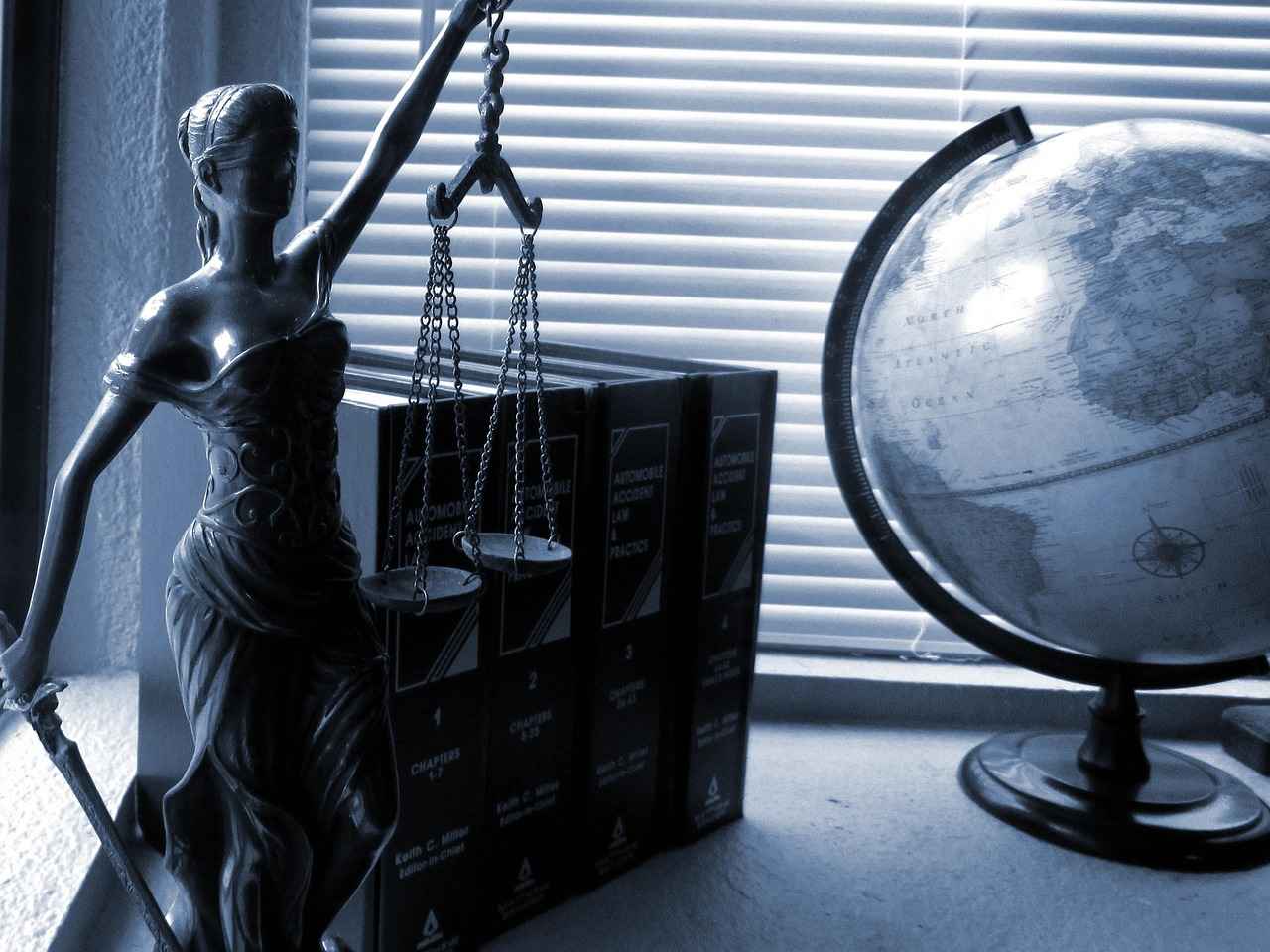
Defamation: Libel and Slander Cases
Defamation cases are serious legal matters that can have profound effects on both personal and professional reputations. These cases typically involve two forms of defamation: libel, which refers to written statements, and slander, which pertains to spoken statements. Given the potential for significant damage, it is crucial to understand how to navigate these sensitive issues effectively.
When pursuing a defamation claim, the first step is to consult with an attorney who specializes in this field. A competent attorney will help you understand the nuances of your case, including the burden of proof, which typically requires you to demonstrate that the statement was false, damaging, and made with a certain level of fault.
In the context of libel, you may need to provide evidence that the written statement was published to a third party and that it caused harm. On the other hand, slander cases often hinge on the ability to prove that the spoken words were not only false but also damaging to your reputation. In many jurisdictions, statements that are considered inherently damaging, such as those alleging criminal behavior or professional incompetence, may not require you to prove actual damages.
Finding the right attorney is crucial. Here are some practical tips for selecting a qualified legal professional:
- Experience: Look for attorneys who have a proven track record in handling defamation cases. Experience can significantly influence the outcome of your case.
- Specialization: Choose a lawyer who specializes in defamation or media law. Specialized knowledge can provide you with a strategic advantage.
- Consultations: Many attorneys offer free initial consultations. Use this opportunity to gauge their understanding of your case and their approach to handling it.
- Reputation: Research online reviews and testimonials. A lawyer with a strong reputation in the community is more likely to be trustworthy.
- Communication: Ensure that the attorney communicates clearly and promptly. Effective communication is essential throughout the legal process.
Additionally, be aware of potential red flags when hiring an attorney:
- Unrealistic Promises: Be cautious of lawyers who make guarantees about the outcome of your case. No attorney can predict the future.
- Lack of Transparency: Avoid attorneys who are not forthcoming about their fees or the potential costs associated with your case.
- Pressure Tactics: Steer clear of lawyers who pressure you into making quick decisions. A reputable attorney will allow you time to consider your options.
Understanding the legal landscape surrounding defamation is essential for anyone considering a claim. The stakes are high, and the implications of a defamation lawsuit can be far-reaching. Therefore, it is imperative to approach these cases with the seriousness they deserve and to secure legal representation that is both knowledgeable and trustworthy.
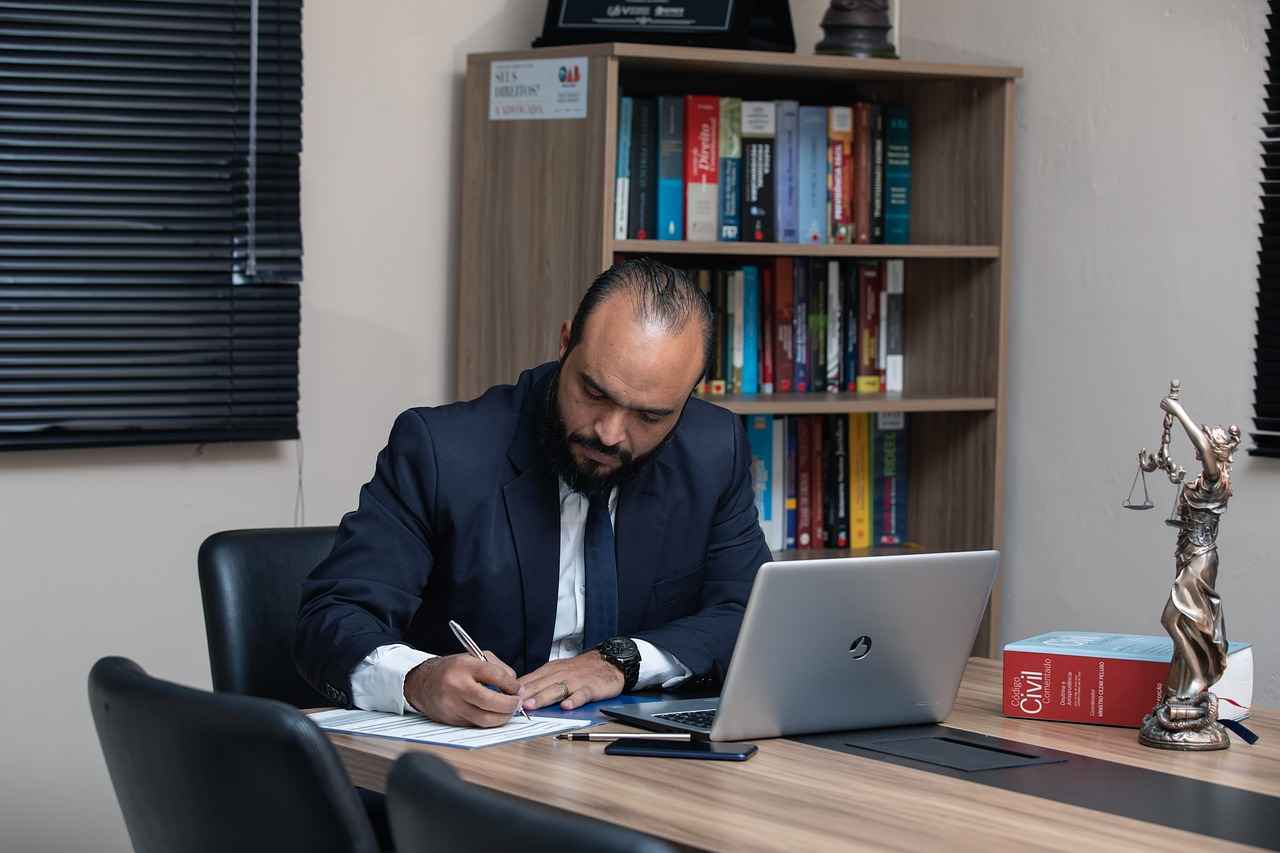
Employment Disputes and Rights
Employment disputes are a critical aspect of labor relations, encompassing a wide range of issues such as wrongful termination, discrimination, and wage disputes. Understanding these issues is vital for employees seeking to protect their rights in the workplace. With the ever-evolving landscape of employment law, it’s essential to find an attorney who specializes in this field to help navigate the complexities of your situation.
When facing an employment dispute, the first step is to identify the specific nature of your case. For instance, wrongful termination refers to being fired for illegal reasons, such as retaliation for reporting unsafe working conditions or discrimination based on race, gender, or age. If you believe you have been wrongfully terminated, it is crucial to consult with an attorney who has a proven track record in employment law to evaluate your case and advise you on the best course of action.
Another common issue is discrimination in the workplace, which can manifest in various ways, including hiring practices, promotions, and workplace harassment. Discrimination cases require nuanced understanding and expertise, as they often involve complex legal standards and the need for substantial evidence. An experienced attorney can help you gather the necessary documentation and present a compelling case to support your claims.
Wage disputes are also prevalent, particularly concerning unpaid overtime, minimum wage violations, or misclassification of employees. If you suspect that you are not being compensated fairly, it is vital to seek legal counsel who can help you understand your rights and the legal remedies available. An attorney can assist in negotiating with your employer or pursuing legal action if necessary.
To find the right attorney for your employment dispute, consider the following steps:
- Research Online: Utilize legal directories and review platforms to find attorneys in your area specializing in employment law. Websites like Avvo, Martindale-Hubbell, and the American Bar Association can provide valuable insights.
- Check Credentials: Look for attorneys with relevant experience, such as those who have handled cases similar to yours. Verify their education, years of practice, and any accolades or recognitions they have received.
- Read Reviews: Client testimonials can offer insight into an attorney’s effectiveness and professionalism. Pay attention to both positive and negative reviews to get a balanced view.
- Consultations: Many attorneys offer free initial consultations. Use this opportunity to discuss your case and assess whether you feel comfortable with the attorney’s approach and communication style.
- Ask Questions: During your consultation, inquire about their experience with cases like yours, their success rates, and their strategy for handling your dispute. This can help you gauge their expertise and compatibility with your needs.
It’s also essential to be aware of red flags when selecting an attorney. If an attorney makes unrealistic promises about the outcome of your case or pressures you into making quick decisions, consider this a warning sign. A reputable attorney will provide honest assessments and allow you time to make informed choices.
In conclusion, employment disputes can be complex and emotionally charged, making it vital to have the right legal representation. By understanding the types of employment issues you may face and knowing how to find a qualified attorney, you can better protect your rights and navigate the legal landscape effectively.
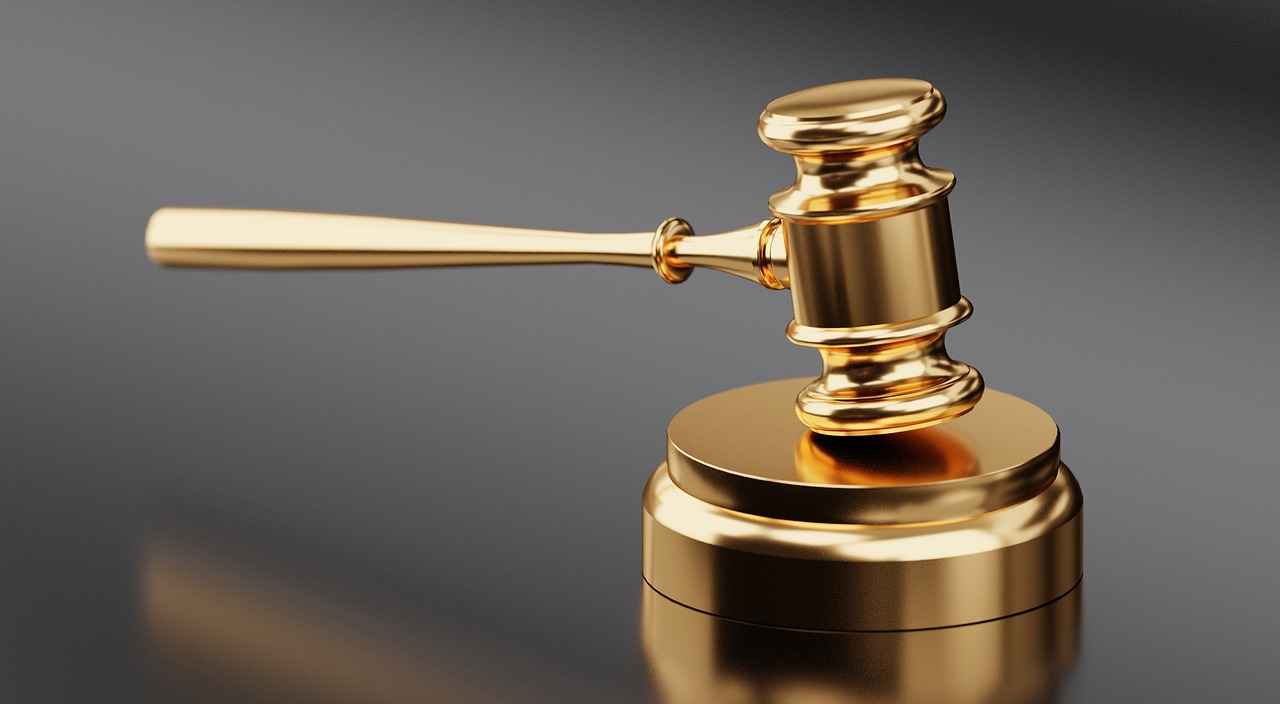
Product Liability Cases
represent a significant area of law that deals with the responsibility of manufacturers, distributors, and retailers when consumers are harmed by defective products. These cases can arise from various issues, including design defects, manufacturing flaws, or inadequate warnings and instructions. Understanding the intricacies of product liability is essential for consumers seeking justice and compensation for their injuries.
When pursuing a product liability claim, it is crucial to identify a lawyer who specializes in this area. An experienced attorney can enhance your chances of a successful outcome by navigating the complex legal landscape and ensuring that your rights are protected. Here are some key considerations when searching for a qualified product liability attorney:
- Experience and Specialization: Look for an attorney with a proven track record in product liability cases. They should have experience handling similar cases and be familiar with the relevant laws and regulations.
- Reputation: Research the attorney’s reputation within the legal community. Online reviews, testimonials, and referrals from previous clients can provide valuable insights into their professionalism and effectiveness.
- Initial Consultation: Many attorneys offer free initial consultations. Use this opportunity to discuss your case and gauge the attorney’s communication style and willingness to answer your questions.
- Fees and Payment Structure: Understand the attorney’s fee structure. Most product liability attorneys work on a contingency basis, meaning they only get paid if you win your case. Ensure you discuss fees upfront to avoid any surprises later.
- Resources: A competent attorney should have access to resources such as expert witnesses, investigators, and support staff to build a strong case on your behalf.
It is also important to be aware of potential red flags when selecting a product liability attorney. Avoid lawyers who make unrealistic promises or guarantees about the outcome of your case. Additionally, be cautious of attorneys who lack transparency regarding their fees or who pressure you into making quick decisions.
In major metropolitan areas like New York City, Los Angeles, and Chicago, the competition among attorneys can be fierce. Utilize online platforms such as Avvo and FindLaw to compare attorneys based on their expertise, reviews, and ratings. Local bar associations can also provide referrals to qualified attorneys in your area.
Ultimately, finding the right product liability attorney can make a significant difference in your case. By conducting thorough research, asking the right questions, and trusting your instincts, you can identify a legal professional who will advocate for your rights and help you achieve the compensation you deserve.

Understanding Wrongful Death Claims
Understanding wrongful death claims is essential for anyone who has lost a loved one due to another party’s negligence or misconduct. These claims are a legal avenue for families to seek justice and compensation for their loss, covering not just the emotional toll but also financial burdens that arise from such tragedies.
In the United States, wrongful death claims can arise from various situations, including car accidents, medical malpractice, workplace accidents, and even criminal acts. The primary objective of these claims is to hold the responsible party accountable for their actions, providing some financial relief to the victims’ families.
When pursuing a wrongful death claim, it is crucial to select an attorney who specializes in this sensitive area of law. Look for an attorney with a proven track record in handling wrongful death cases, as their experience can significantly influence the outcome of your claim. Here are some key factors to consider when choosing a wrongful death attorney:
- Experience: Ensure that the attorney has substantial experience specifically in wrongful death claims. This expertise can help navigate the complexities of the legal system effectively.
- Reputation: Research the attorney’s reputation through online reviews, testimonials, and referrals from friends or family. A well-regarded attorney will have a history of successful cases and satisfied clients.
- Communication: Choose an attorney who communicates clearly and promptly. You should feel comfortable discussing your case and receiving updates regularly.
- Fees: Understand the attorney’s fee structure. Many wrongful death attorneys work on a contingency fee basis, meaning they only get paid if you win your case. Clarify any potential costs upfront.
- Empathy: Look for an attorney who demonstrates compassion and understanding of your situation. A supportive attorney can make a significant difference during this difficult time.
In addition to these factors, it is advisable to schedule initial consultations with multiple attorneys. This allows you to gauge their approach, expertise, and whether you feel comfortable working with them. During these consultations, ask about their experience with similar cases and their strategy for pursuing justice on your behalf.
Furthermore, be aware of red flags that may indicate a less-than-reputable attorney. These include:
- Pressure to sign contracts immediately without sufficient explanation.
- Lack of transparency regarding fees and potential costs.
- Negative reviews or a history of disciplinary actions.
- Failure to communicate or respond to your inquiries in a timely manner.
In summary, navigating the complexities of wrongful death claims requires a knowledgeable and compassionate attorney. By conducting thorough research and considering the factors mentioned above, you can find a qualified lawyer who will advocate for your rights and help you seek the justice your loved one deserves.

Class Action Lawsuits: An Overview
Class action lawsuits represent a powerful legal mechanism that allows a group of individuals to collectively address grievances against a common defendant. These lawsuits are particularly useful when individual claims may be too small to warrant separate legal action, yet the collective impact can be significant. In this overview, we will explore the essentials of class action lawsuits and provide guidance on how to find a qualified attorney experienced in this area of law.
When considering a class action lawsuit, it’s important to understand the criteria that must be met for a case to qualify. The group of plaintiffs, known as the class, must share common legal issues or facts, making it more efficient for the courts to handle them together. This can include cases related to consumer fraud, employment disputes, environmental issues, or product liability. The complexity of these cases often necessitates the expertise of an attorney who specializes in class actions.
Finding the right attorney for a class action lawsuit can be a daunting task. Here are some proven methods to help you locate a qualified legal professional:
- Research Online: Utilize legal directories such as Avvo or FindLaw to search for attorneys who specialize in class action lawsuits. Look for reviews and ratings from previous clients to gauge their effectiveness.
- Check Credentials: Ensure the attorney has a solid background in class action litigation. Look for memberships in relevant organizations, such as the American Association for Justice or state bar associations that focus on class action law.
- Consult Referrals: Ask friends, family, or colleagues for recommendations. Personal referrals can provide insights into an attorney’s track record and client satisfaction.
- Evaluate Experience: Inquire about the attorney’s experience with similar cases. An attorney who has successfully handled class action lawsuits will have the necessary skills to navigate the complexities involved.
- Initial Consultation: Schedule consultations with potential attorneys. Use this time to discuss your case and evaluate their approach. Pay attention to how they communicate and whether they take the time to understand your concerns.
While searching for a class action attorney, be mindful of red flags that may indicate a less-than-ideal choice:
- High Pressure Tactics: If an attorney pressures you to sign a contract immediately, this may indicate a lack of professionalism. Take your time to make an informed decision.
- Lack of Transparency: An attorney should be upfront about their fees, potential outcomes, and the risks involved in your case. If they are vague or evasive, consider looking elsewhere.
- Limited Experience: Be wary of attorneys who claim to be experts in many areas of law but lack specific experience in class action lawsuits. Specialization is key in this complex field.
In conclusion, class action lawsuits serve as an essential tool for individuals seeking justice against larger entities. By carefully researching and selecting an attorney with the right expertise, you can increase your chances of a successful outcome. Remember to take your time in the selection process, ensuring that you find a legal professional who aligns with your needs and can effectively represent your interests.

Assault and Battery Legal Matters
Assault and battery cases are serious legal matters that encompass both criminal charges and civil claims. These cases often arise from incidents involving physical harm or the threat of harm to an individual. Understanding the nuances of these legal issues is crucial for anyone involved, whether as a victim or an accused party. The legal definitions of assault and battery can vary by state, but generally, assault refers to the act of threatening or attempting to cause physical harm, while battery involves the actual physical act of harming someone.
When facing such charges, it is imperative to find a competent attorney who specializes in both criminal defense and personal injury law. A skilled lawyer will not only understand the intricacies of the law but also be able to navigate the complexities of the legal system effectively. Here are several key points to consider when searching for the right legal representation:
- Experience in Assault and Battery Cases: Look for attorneys who have a proven track record in handling assault and battery cases. They should be familiar with local laws and have experience in both criminal and civil court settings.
- Reputation and Reviews: Research potential lawyers through online platforms such as Avvo or Martindale-Hubbell, which provide ratings and reviews from previous clients. A lawyer with positive feedback is often a good indicator of their capabilities.
- Consultation Meetings: Many attorneys offer free initial consultations. Use this opportunity to ask about their experience, approach to your case, and any potential strategies they might employ.
- Clear Communication: Ensure that the attorney is someone who communicates clearly and promptly. You want a lawyer who will keep you informed throughout the legal process.
- Fee Structure: Understand the attorney’s fee structure upfront. Some lawyers work on a contingency basis, while others may require hourly rates. Make sure you are comfortable with the financial arrangements.
In addition to these considerations, be aware of red flags that may indicate a less-than-qualified attorney. For example, if a lawyer guarantees a specific outcome or pressures you into making quick decisions, it may be wise to seek counsel elsewhere.
Assault and battery cases can have long-lasting consequences, from criminal convictions to civil liabilities. Therefore, securing the right legal representation is essential not only for navigating the immediate legal challenges but also for protecting your rights and future. By taking the time to research and choose an attorney wisely, you can significantly improve your chances of achieving a favorable outcome.

Criminal Defense: Drug Offenses and Beyond
In the realm of criminal law, drug offenses represent a significant category that can lead to severe legal consequences. The complexity of drug-related charges often necessitates the expertise of a skilled criminal defense attorney. In the United States, the legal landscape surrounding drug offenses varies widely by state, making it crucial for defendants to seek representation from a lawyer who is well-versed in local laws and regulations.
When facing drug charges, individuals may encounter a range of accusations, from possession of controlled substances to trafficking and distribution. The penalties for these offenses can be severe, including hefty fines, imprisonment, and a permanent criminal record that can affect future employment and housing opportunities. Therefore, selecting an experienced criminal defense attorney is not just advisable; it is essential for navigating the complexities of the legal system.
To find the best legal representation for drug offenses, consider the following steps:
- Research Local Attorneys: Start by researching attorneys who specialize in criminal defense, particularly those with a focus on drug-related cases. Look for lawyers with a proven track record of success in similar cases.
- Check Credentials: Verify the attorney’s credentials, including their education, years of experience, and any certifications in criminal law. Membership in professional organizations, such as the National Association of Criminal Defense Lawyers, can also indicate a commitment to the field.
- Read Reviews: Online reviews and testimonials can provide insight into an attorney’s reputation and effectiveness. Pay attention to feedback regarding their communication style, case outcomes, and overall client satisfaction.
- Consultation: Schedule consultations with potential attorneys to discuss your case. This initial meeting is an opportunity to assess their knowledge, approach, and whether you feel comfortable working with them.
- Evaluate Communication: Effective communication is key in legal representation. Choose an attorney who is approachable and willing to explain the legal process in terms you can understand.
In addition to drug offenses, criminal defense attorneys also handle a variety of other serious charges, including theft and burglary, fraud and embezzlement, and even murder and homicide. Each category presents its own unique challenges and legal intricacies. For instance, theft charges can range from petty theft to grand theft, each carrying different penalties and legal implications. Similarly, fraud cases often involve complex financial transactions that require a lawyer with specialized knowledge in financial crimes.
When dealing with such serious allegations, it is vital to have a defense attorney who understands the nuances of these cases and can build a robust defense strategy. This may include gathering evidence, interviewing witnesses, and negotiating plea deals when appropriate.
Another important area of criminal defense is DUI/DWI, which can have devastating effects on an individual’s life. Penalties for driving under the influence can include fines, license suspension, and even jail time. A knowledgeable attorney can help defendants understand their rights and the potential outcomes of their case, which is especially important in states with strict DUI laws.
Furthermore, offenses related to domestic violence and sexual offenses require sensitive handling and a deep understanding of both criminal and family law. Victims and defendants alike need representation that can navigate the complexities of these emotionally charged cases while ensuring that their rights are protected.
Lastly, emerging issues such as cybercrime and white-collar crime are increasingly prevalent in today’s digital age. These cases often involve intricate details and require attorneys who are familiar with technology and financial regulations. Finding a lawyer with experience in these areas can be crucial for achieving a favorable outcome.
In summary, whether facing drug offenses or other serious criminal charges, it is imperative to choose a qualified criminal defense attorney. By following the outlined steps and considering the specific legal challenges associated with various types of offenses, individuals can find the right legal representation to navigate their cases effectively.

Family Law: Divorce and Custody Issues
Family law is a crucial area of legal practice that addresses sensitive issues such as divorce, child custody, and support matters. These cases often involve intense emotional turmoil, making it essential to find an attorney who is not only knowledgeable but also compassionate. A proficient family law attorney can make a significant difference in the outcomes of these cases, ensuring that the rights and well-being of all parties—especially children—are prioritized.
When navigating the complexities of family law, individuals should consider a few key factors in their search for an attorney:
- Experience and Specialization: Look for attorneys who specialize in family law and have substantial experience handling cases similar to yours. This specialization ensures they are familiar with the nuances of the law and can provide tailored advice.
- Reputation and Reviews: Research potential lawyers through online reviews and testimonials. Websites like Avvo and Yelp can provide insights into their reputation and the experiences of former clients.
- Consultation Availability: Many attorneys offer free initial consultations. Use this opportunity to gauge their approach and determine if you feel comfortable discussing your situation with them.
In addition to these factors, it’s important to assess the attorney’s communication style. Family law matters often require ongoing discussions and negotiations, so a lawyer who communicates clearly and empathetically can greatly ease the process.
Another critical aspect to consider is the attorney’s approach to conflict resolution. Some attorneys may advocate for a more aggressive stance, while others may prioritize mediation and amicable solutions. Depending on your situation, you may prefer one approach over the other. Ensure that your attorney aligns with your goals and values.
Furthermore, understanding the financial aspects of hiring a family law attorney is vital. Inquire about their fee structure, whether they charge hourly rates or flat fees, and any potential additional costs that may arise. This transparency will help you avoid unexpected financial burdens during an already challenging time.
Ultimately, finding the right family law attorney involves careful research and consideration. By focusing on experience, reputation, communication style, and financial clarity, individuals can secure a legal advocate who will effectively navigate the complexities of divorce and custody issues.
Frequently Asked Questions
- What should I look for in a personal injury attorney?
When searching for a personal injury attorney, consider their experience, success rate, and client reviews. A good attorney should be empathetic and willing to fight for your rights. It’s like finding a coach who believes in you and knows how to win the game.
- How can I determine if a lawyer specializes in medical malpractice?
Check their website and look for specific cases they’ve handled related to medical malpractice. You can also ask for references or consult with past clients. Think of it like choosing a doctor; you want someone who specializes in the exact area you need help with!
- What are the typical fees for hiring an attorney in Chandler?
Most attorneys work on a contingency fee basis for personal injury cases, meaning they only get paid if you win. Others may charge hourly rates or flat fees. Always clarify fees upfront to avoid surprises later!
- Can I represent myself in a legal case?
While it’s possible to represent yourself, it’s often not advisable. Legal matters can be complex, and having a skilled attorney is like having a seasoned pilot fly your plane—it’s safer and more efficient!
- What should I do if I can’t afford a lawyer?
Many attorneys offer free consultations and work on a contingency basis. You can also look into legal aid services in your area. Remember, there are always options available to help you get the legal support you need!














